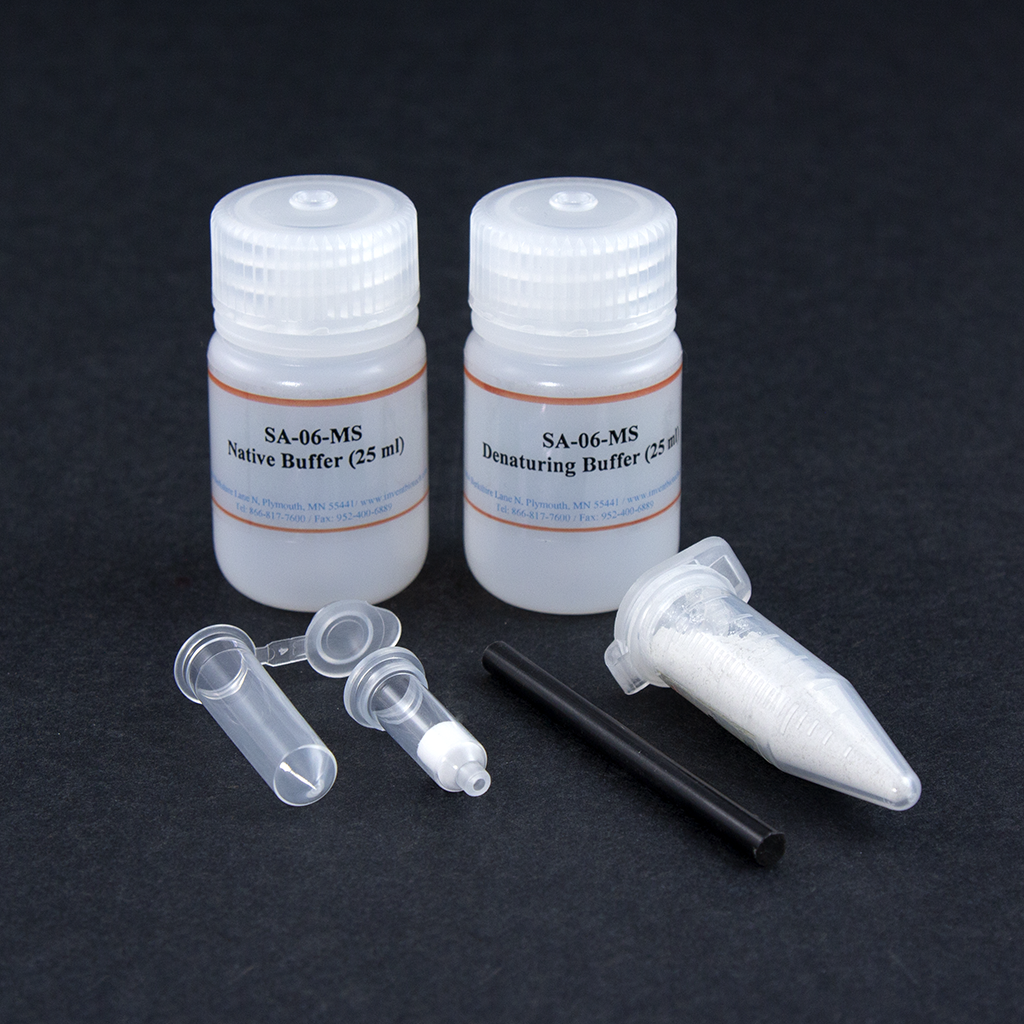Shipping calculated at checkout
Couldn't load pickup availability
Questions about this product? Ask our scientist!
Minute™ Total Protein Extraction Kit for Muscles (50 Preps)
SKU:Cat #: SA-06-MS
Manual & Protocol | MSDS
Skeletal and cardiac muscles are highly specialized tissues that are made of well-arranged muscle fibers. An individual muscle may be made up of hundreds or even thousands of muscle fibers bundled together and wrapped in a connective tissue covering. The unique organization of the muscle tissue makes it very hard to homogenize. It is also very difficult to lyse cells in the tissue for total protein extraction. Traditional solution-based protein extraction methods, such as RIPA, are inefficient and the protein yield is low. The profile of extracted protein using traditional methods is usually incomplete. This kit provides a highly efficient method for total protein extraction from human/animal skeletal or cardiac muscle tissues using a combination of mechanical extraction and chemical lysis. The cell lysis buffers used are much stronger than RIPA buffers. The kit features a simple, fast single-tube protocol and optimized buffers for muscle tissues. Researchers have the option to choose either a denaturing or native cell lysis buffer, which is specifically tailored for muscle tissues. The whole procedure takes less than 10 minutes to complete and the protein yield is in the range of 2-10 mg/ml. The materials provided are sufficient for 50 extractions.
Shipping and storage: This kit is shipped and stored at room temperature.


Kit components:
|
Items |
Quantity |
|
Denaturing Buffer |
25 ml |
|
Native Buffer |
25 ml |
|
Protein Extraction Powder |
5g |
|
Plastic Rods |
2 units |
|
Filter Cartridges |
50 units |
|
Collection Tubes |
50 units |
References (8)
1. Xu, Q., Ding, H., Li, S., Dong, S., Li, L., Shi, B., ... & Zhang, G. (2021). Sleeve Gastrectomy Ameliorates Diabetes-Induced Cardiac Hypertrophy Correlates With the MAPK Signaling Pathway. Frontiers in Physiology, 2037.
2. Li, S., Dong, S., Xu, Q., Shi, B., Li, L., Zhang, W., ... & Zhong, M. (2022). Sleeve Gastrectomy-Induced AMPK Activation Attenuates Diabetic Cardiomyopathy by Maintaining Mitochondrial Homeostasis via NR4A1 Suppression in Rats. Frontiers in Physiology, 13, 837798.
3. Li, S., Dong, S., Shi, B., Xu, Q., Li, L., Wang, S., ... & Hu, S. (2022). Attenuation of ROS/Chloride Efflux-Mediated NLRP3 Inflammasome Activation Contributes to Alleviation of Diabetic Cardiomyopathy in Rats after Sleeve Gastrectomy. Oxidative Medicine and Cellular Longevity, 2022.
4. Gonzalez, M. L. (2022). The effects of tributyrin and butyrate on equine skeletal muscle (Doctoral dissertation, Virginia Tech).
5. Saelens, G., Planckaert, S., Devreese, B., & Gabriël, S. (2022). Transmissibility of Anisakid allergenic peptides from animal feed to chicken meat: proof of concept. Journal of Food Composition and Analysis, 104939.
6. Yang, G., Liu, Z., Dong, S., Zhao, X., Ge, Z., Cheng, Z., ... & Wang, K. (2023). Duodenal‐jejunal bypass surgery activates eNOS and enhances antioxidant system by activating AMPK pathway to improve heart oxidative stress in diabetic cardiomyopathy rats. Journal of Diabetes.
7. Yang, G., Liu, Z., Dong, S., Zhao, X., Ge, Z., Cheng, Z., ... & Wang, K. (2024). Duodenal‐jejunal bypass surgery activates eNOS and enhances antioxidant system by activating AMPK pathway to improve heart oxidative stress in diabetic cardiomyopathy rats. Journal of Diabetes, 16(7), e13516.
8. Xie, L., Zang, D., Yang, J., Xue, F., Sui, W., & Zhang, Y. (2024). Combination of ADAM17 knockdown with eplerenone is more effective than single therapy in ameliorating diabetic cardiomyopathy. Frontiers in Pharmacology, 15, 1364827.

